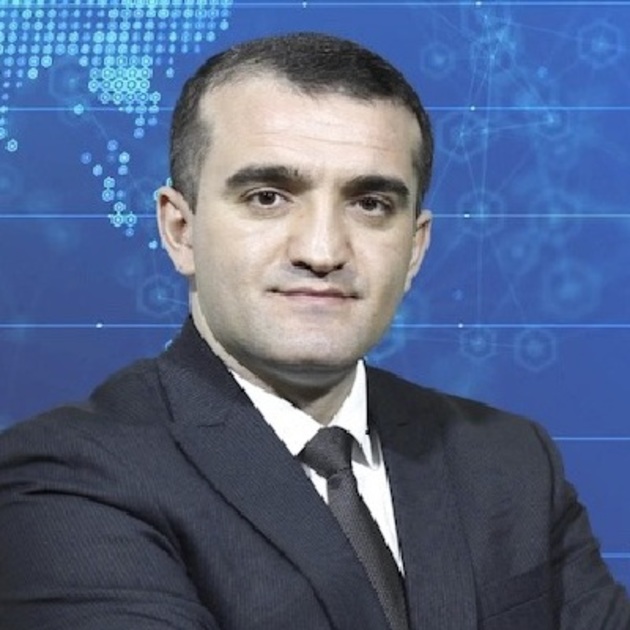While many had expected U.S. President Biden to follow a softer foreign policy and marginalize hawkish politicians in the White House, it seems that Biden pursues a more aggressive approach. Head of the Azerbaijan Institute for Democracy and Human Rights Ahmad Shahidov says that the United States exercises double standards in the world extensively in his interview to Tehran Times.
- Could you update us about the last developments in Azerbaijan-Armenia relations?
- Certain tensions remain between Azerbaijan and Armenia after the historic peace agreement of November 10, 2020. The two main issues have caused tension between the parties. The Azerbaijani side demands a map of mines in the liberated territories from Armenia, but officially Yerevan refuses to provide these maps.
The problem is that over the past six months, about 50 Azerbaijani servicemen and civilians have been killed by landmines in those areas. Azerbaijan has also appealed to international organizations on this issue, but, unfortunately, there is no positive result yet.
The second issue is related to military saboteurs detained on the Azerbaijani side. After the November 10 agreement, a group of Armenian saboteurs attacked Azerbaijani military positions and killed Azerbaijani border guards. Reacting to this, the Azerbaijani army carried out anti-terrorist operations, and those terrorist saboteurs were neutralized. At present, they are expected to be tried under Azerbaijani law. Azerbaijan considers them terrorists, while Armenia calls them prisoners of war and demands their return from Baku. These two issues cause tensions between the parties.
- Do you predict a long-run peace in the region? What factors threaten the peace and stability there?
- Of course, the November 10 agreement serves to establish long-term peace in the region. Azerbaijan is ready for this and fully complies with the terms of the agreement. There are certain revanchist forces in Armenia that are threatening Azerbaijan with a new war. There is still calm in the region, but it is too early to say that long-term peace will be fully established. First, refugees must return to their homes, coexist in the region, and infrastructure restored. We are at the beginning of a long and difficult path to peace.
- How do you see U.S. position and policy when it comes to the Azerbaijan-Armenia dispute? Do you see any change in U.S. policies?
- U.S. policy consists of double standards. Not only on the Karabakh issue but also on other conflicts in the world, Washington's position is aimed at ensuring its own interests. The United States is one of the co-chairs of the OSCE Minsk Group in resolving the Azerbaijani-Armenian conflict. But over the last 30 years, we have not seen a serious Washington mediation mission. During the 44-day war, the Biden administration also made statements in support of the occupation, which rightly deepened distrust of the United States in Azerbaijan.
Joe Biden's statement about the Armenian genocide is also a method of pressure and blackmail against Turkey. This issue has been used as a threat for years, and this year the mask of Washington was finally torn, and we have seen the real America. Unlike previous presidents, Joe Biden pursues a more aggressive and predatory policy. This is not only the case with Turkey. We also see this predatory policy against Russia, China, Iran, and other countries. The goal is to restore U.S. global leadership. But it is too late. America is no longer a world leader.
- How do you evaluate Iran-Azerbaijan's economic ties? Is there any development after Tehran declared that it is ready to contribute to the reconstruction of Karabakh?
- Iran-Azerbaijan relations continue to develop. In the 44-day war, official Tehran's position was also fair, and the Islamic Republic of Iran officially supported the territorial integrity of Azerbaijan. This was what we expected from Iran. Economic relations between the two countries continue. Even last week, when Azerbaijani President Ilham Aliyev visited the liberated Jabrayil and Zangilan regions, he called the Azerbaijani-Iranian border a friendly border. During the official visit of Iranian Foreign Minister Javad Zarif to Baku, Iranian companies' participation in the reconstruction work in Karabakh was also discussed. I think that Iran should take more active initiatives in this regard. Iran has extensive experience in this field, and there is a need to apply these practices in Karabakh as well.
- What is your take of the Chinese Belt and Road initiative? Would it consolidate the ties between regional players?
- China's "Belt and Road Initiative" project is a global project that will benefit all countries in the region. The countries of the South Caucasus also play a key role in the implementation of this project. This project worries the imperialist circles of the West. Because with the realization of this project, the importance of China in the world is growing, while the importance of the United States and the West is seriously declining. The winners of this project will also be Iran, Azerbaijan, Turkey, Georgia, and other countries. I think that this project will change not only the economic weight of the world but also its geopolitical shape as a whole.






